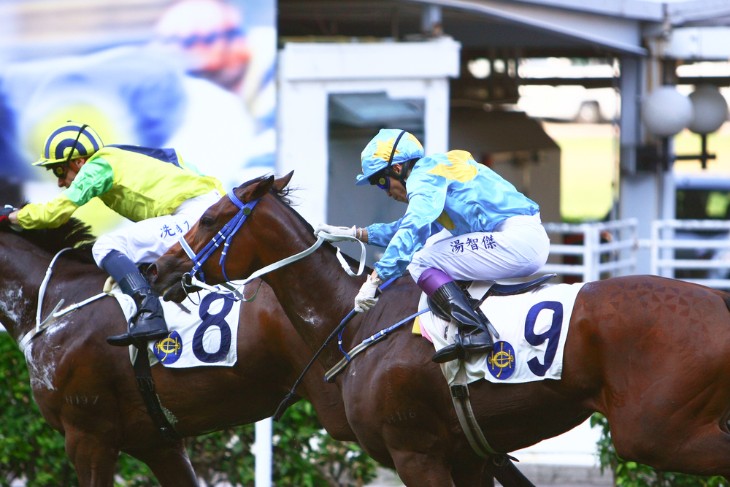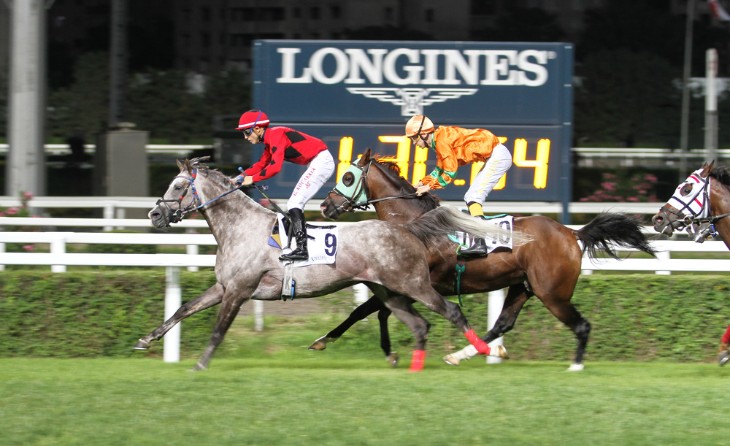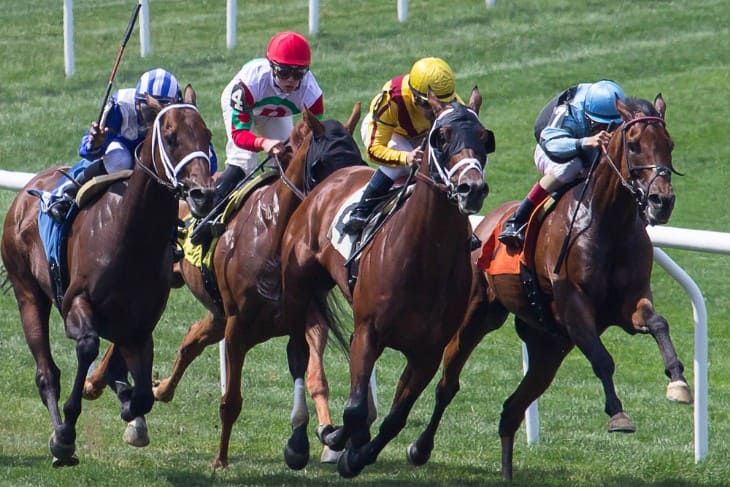Enthusiasts and collectors of this genre have a goldmine in horse racing memorabilia. If you have old programs, signed jockey silks, or other unique items, knowing where to sell them is essential, as this can impact your price. This guide will help you find the best places to sell your horse racing memorabilia.
Online Outlets
Selling through online outlets is one of the ways that you can use when selling horse racing memorabilia. These platforms make it possible for sellers to reach out to very many customers while at their homes. Some of the most famous websites for marketing these products include eBay and Etsy, which are user-friendly and help people list their products easily.
eBay or Etsy can be used as they offer you a chance to write itemised descriptions, which should contain clear images. Use high-quality photos, as poor ones may not show enough details about your product, so wear clean clothing. Photos are very important. Make sure that there's an amazing description, too. It should include things like its condition, background, and any striking features that may be present. This will enable potential buyers to understand what exactly they want.
If your items are rare or have some value attached to them, choose auction-style listings on eBay. This allows bidders to set prices for your item, but the highest bid wins it. At times, this can result in increased pricing compared with others. Alternatively, eBay provides the 'Buy It Now' option, whereby one sets a fixed amount, and whoever accepts it first is given the item.
Etsy mainly deals with handmade and vintage goods, making it ideal for custom-made memorabilia or unique ones. Here, you can create your own shop, which gives your wares a personal touch. Avenues, where people appreciate traditional artistry on such items, are available via this platform.
Both platforms charge listing and selling fees, so reading through their policies is important. Shipping should also be considered. To ensure that your items are in perfect condition by the time they reach the buyer, you must wrap them carefully and choose a reliable shipping method.
EBay and Etsy are two leading sites for selling horse racing memorabilia. They have a huge market base, easy listening tools, and different vending choices that best suit one's needs. Clear photos and good descriptions can help you attract buyers and get a fair price.
Specialist Auctions
Specialist auctions are excellent choices for auctioning horse racing memorabilia. These auctions target individuals who want unique pieces of horse racing memorabilia. Some auction houses, such as Bonhams or Sotheby's, Deal with sports artefacts like those used in horse racing.
This method gives you access to customers who like collecting specific kinds of products. By participating in this kind of sale, you can reach sellers who will pay more than any other person if they want your product.
It is straightforward: all you need to do first is contact the auction house and provide them with information about what you have. This will help them estimate your items' worth correctly. Besides, sending pictures together with descriptions can help them understand how valuable your property may be, which motivates their interest in including it during their next public sale.
These have several benefits attached; first, professional appraisals guarantee that goods are priced correctly, while others facilitate marketing efforts, hence drawing customers without much hassle on the seller's part, ensuring that he does not need advertising space to sell his possessions himself.
Still, there are expenses you will have to meet. Auctioneers usually charge their clients a fee, typically a percentage of the final sale price. Make sure you know these costs before you decide to go down this route. However, despite these charges, higher selling prices often make auctions attractive.
On auction day, your items will be placed with other high-quality memorabilia. In this regard, the competitive atmosphere and behaviour displayed by collectors who compete against each other may result in skyrocketing prices of goods sold at auction. Concerning this issue under review, it is essential to consider that such auctions can cost more than otherwise expected.
Horse racing memorabilia can be professionally and effectively sold through specialised auctions like those organised by Bonhams and Sotheby's. These options, therefore, top the list of severe sellers because they come with expert appraisals and a targeted marketing plan that may generate high selling prices.

Shows and Fairs For Collectors
Shows and fairs for collectors are among the best places where someone could sell horse racing paraphernalia. Given this information henceforth also making these events worth attending, let us now focus on why we have made such conclusions.
- Direct Contact with Customers: As a seller, you get one-on-one time with your customers in "collectors' shows" or "fairs." This direct approachability aspect has far-reaching effects on your sales numbers. During such occasions, you have the chance to respond to questions posed to you about individual pieces and even negotiate the prices face-to-face. It is easier to tell if something will find buyers or not when people can give an immediate reaction.
- Specific Target Groups: The crowd at any given show or fair consists only of interested collectors. This implies that almost everyone present wants what is being showcased here, thus involving situations whereby your items stand out compared to many others. As a result, the interest is concentrated, and this raises the likelihood of finding the right buyer and someone who properly appreciates the cost of your things.
- Networking Opportunities: At fairs for collectors, you can connect with other sellers, buyers or people working in that field. By networking at such events, you can sell more items in the future and obtain significant insights into this market segment. Besides, these occasions are meant to share information related to consumer demand.
- Exhibit Your Collection: Renting a stall or booth lets you show off your collection professionally. Better presentations can attract more buyers. Ensuring that every item is well-spaced and has a clear price tag is essential. When participating in such an activity, one should try as much as possible to make their displays look appealing and easily recognized.
- Market Trends and Insights: Attending these events allows you to see what kinds of popular collectables and how much money people pay for them. This includes pricing yours right and understanding what customers want when selling your goods.
Horse racing memorabilia can be sold through "collectors' shows" or "fairs." These options remain beneficial because they bring direct buyer interaction, a target audience, networking chances, the ability to show your collection, and valuable market research results.
Dealers in Memorabilia
Memorabilia sellers are good to go if you want to sell horse racing stuff. These are people who specialise in buying and selling objects that people collect. They know the market well and will give you a fair price for your items.
Selling to a dealer is simple. You contact the dealer, tell them about your memorabilia, and send photos and descriptions so they can evaluate its value. If interested, they will make an offer. Directness saves time when contrasted with online listings or auctions.
One significant advantage of using dealers is convenience. Dealers handle everything, such as price and advertising details, on your behalf. You do not need to create listings, take pictures or deal with buyers; this makes it easy and convenient.
Dealers have expertise as well. They can accurately appraise your stuff, giving insights into how much each one costs. This appraisal helps ensure that you get a fair price from the transaction at hand since they have a very good understanding of the market and what collectors look for.
Moreover, dealers often know certain collectors more personally too. They can sell your things on consignment, hence the sale process where these goods are sold, then they earn commission after that happens," said Mark Petrie, owner of Petrie's Bookstore in Colorado Springs" (Petrie 15). Professionals like him understand how to identify their target audience since they know who will most likely purchase their products.
However, finding an honest dealer is vital when selling memorabilia." Check out their credentials and see what other sellers are saying about them," advises Ron Strader." In this manner, you can ensure that before making any decision concerning whom/where/how much, etc., there would be no surprises later on, which might result in disappointment due to lack of trust".
Everything about horse racing forums that cater to discussing memorabilia, This implies that their expertise, understanding of the market, and connections can help you get the best price for your items. You have to ensure you pick a reputable dealer for an enjoyable experience.
Selling Memorabilia through Horse Racing Forums and Groups
There are many places to sell horse racing memorabilia, but one of the best is horse racing forums and groups. These are online communities where people who love horse racing come together. They are always looking for unique pieces to add to their collections.
Joining these forums and groups is easy. For example, the Racing Forum has several subgroups for its members and Facebook's social platforms (Horse Racing Fans Page). Once you have become part of the team, start interacting with other members. This will enable you to build trust and rapport with your potential customers.
When describing your memorabilia, provide clear photos along with detailed descriptions." Additionally, any unique attributes or history connected to it should be mentioned," says Alan Todd," which can make potential buyers interested in it" (Todd 124). Again, honesty about the state of your things fosters faith.
Forums allow targeting audiences, too. Everybody participating in these groups is interested in horse races. Therefore, there's a higher probability that someone who values what your collectables mean will sooner or later appear among them.
Conversely, you can expect prompt replies from members who want more information regarding anything posted here." In addition to this interactive feature, making it easier for people selling on sites like eBay or Amazon, such conversations may also speed up a sale so that both parties feel satisfied".
These societies also provide valuable insights beyond sales. "You learn by sharing experiences"," said Jodi Friedman. "For example, on Friday, I sold five hats at $10 each because they were red with white polka dots, while today I sold only two for half that price because they were blue and brown".
Horse racing forums and groups are an excellent platform for selling your horse racing memorabilia. They open a direct window for you to enter the market, mainly targeting your products. They facilitate confidential talks and give helpful business information. By joining these communities, one can have access to potential buyers who are seriously looking for particular products, leading to possible improved sales results.

Local Sports Stores
One can consider local sports stores for the selling of horse racing memorabilia. These outlets often specialise in sporting equipment, which attracts collectors. The following is how you can benefit from using your local sports shop as a selling channel:
- Face to Face Interaction: If you chose to sell there, you could interact face-to-face with the proprietor of a local sports shop. You could get into the shop, talk to the owner, and discuss your items directly. This direct contact will help build trust between you and the store owner and make them understand that your collectables are valuable.
- Convenience: Local sports stores have made selling services convenient. Besides not worrying about shipping or listing online, you can give your memorabilia to the shop and let the owner handle everything else on your behalf. You will save time and energy this way.
- On-the-Spot-Payment: You often receive immediate payment when you sell at a nearby sports store. Unlike online sales or auctions, where several days may pass before transactions conclude, neighbourhood shops pay instantly. This immediate payment proves crucial when you need quick cash.
- Expertise: Most of the time, shop owners have experience with sports memorabilia. They appraise yours based on their knowledge of market trends, hence offering a reasonable price. Therefore, they usually make an offer that is justifiable concerning their knowledge about such products.
- Community Involvement: Doing business through local sports shops means supporting the growth of communities and businesses within them. Local shops have many customers who buy items, thus increasing the chances of them being bought by an enthusiast buyer.
So, local sports shops offer convenience, immediacy, and personalization when selling horse racing memorabilia. Most importantly, these are good places where valuation expertise combined with community backing might guarantee fair pricing of one's things.
Direct Selling
In terms of horse racing memorabilia, one could also prefer direct selling. In this method of selling, you do not need to rely on intermediaries like dealers or auctions, as you can go ahead and sell your items directly to other collectors or fans. Here are ways through which you can maximise direct sales:
With direct selling, the entire process is in your hands. You determine the prices, negotiate terms and make final decisions. It is more flexible than dealing with middlemen such as dealers or auctions.
Direct sales work through personal networks. Visit horse racing events and shows, club meetings, etc, where fans congregate in one place. There are potential buyers in these places that share your enthusiasm with you; hence, tell them since word of mouth works here, too. To advertise yourself as a seller of memorabilia at such events.
When meeting potential buyers, bring your memorabilia and any other accompanying papers. Personal stories, certificates of authenticity for original programs, autographed release forms, or historical artefacts will make them more interesting.
Direct sales permit instant transactions to take place. You haggle over the price, agree to it, and finalise the transaction immediately between both parties. It may be faster than waiting for an online sale to be processed or an auction to finish due to delays, especially by mediators agents who charge commissions.
Honesty counts when it comes to direct sales. Always be honest about the condition of each item. Clearly and accurately describe each item. By giving an accurate description of your merchandise, you can create trust with potential buyers. They will want it very much if they believe what you say about its true nature and value.
Personal contact marketing offers an adaptable, practical, and individualistic channel for selling horse racing memorabilia. Networking, showcasing your goods, and being truthful can help you contact buyers and complete transactions smoothly. This method gives you control and often results in quicker sales.
Bottom Line
Once you know where to sell them, selling horse racing memorabilia is fun. You may use online marketplaces, specialist auctions, collectors' shows, memorabilia dealers, forums, local sports shops, or direct sales. All these methods have their own merits, and the suitable choice depends on the nature of your items and what you would prefer.
For more information:








